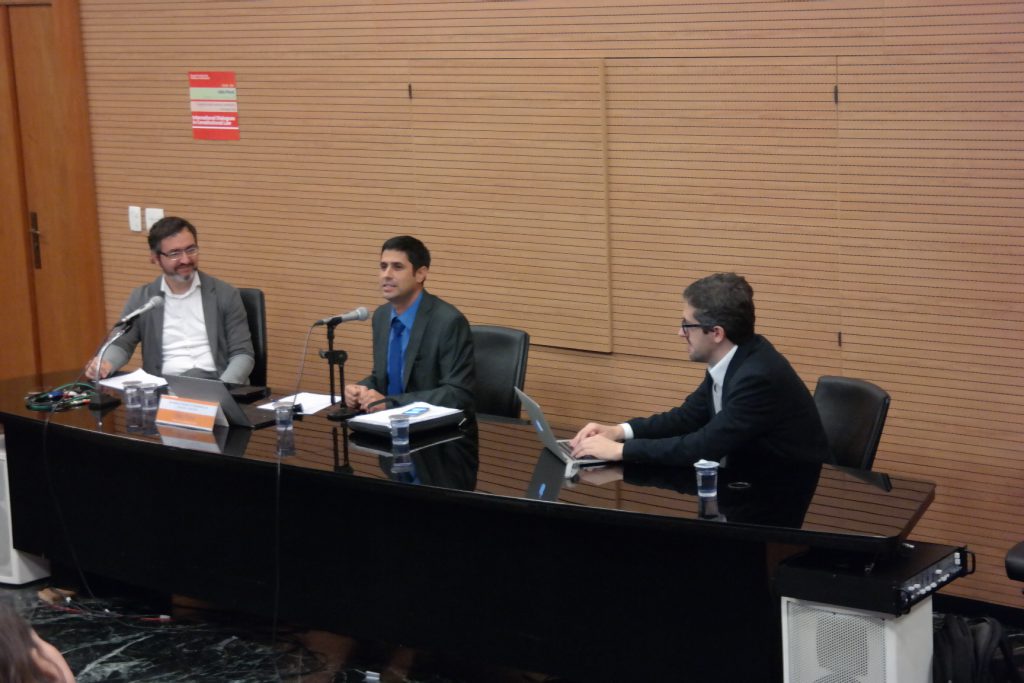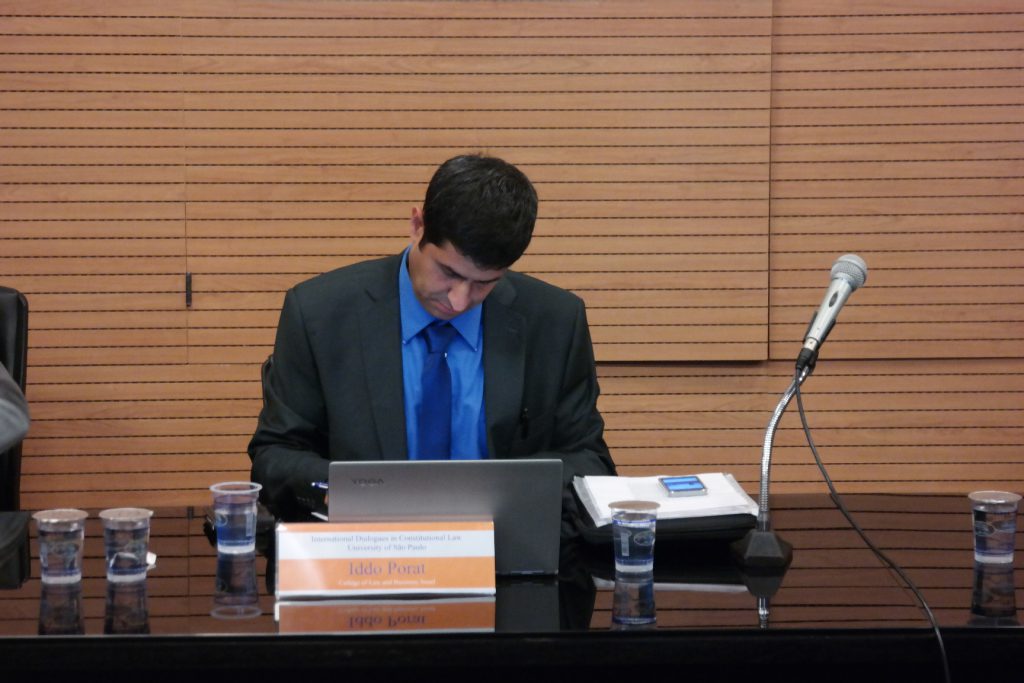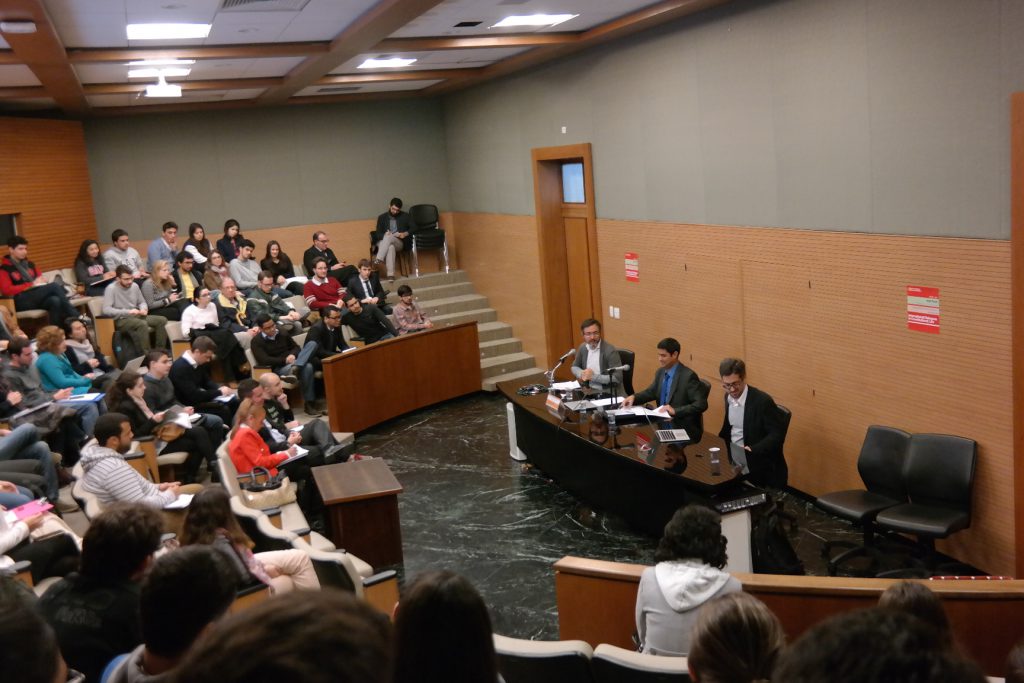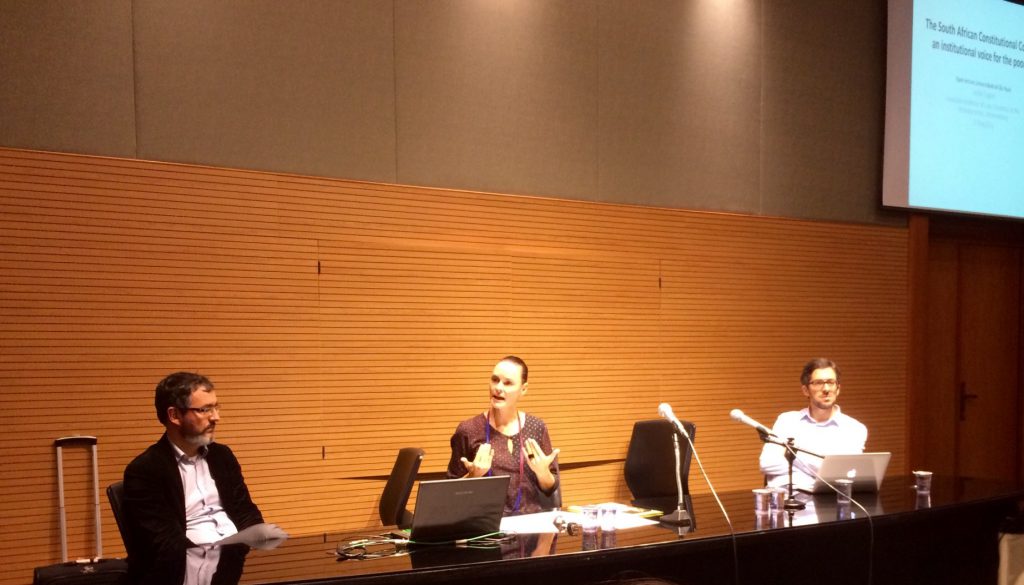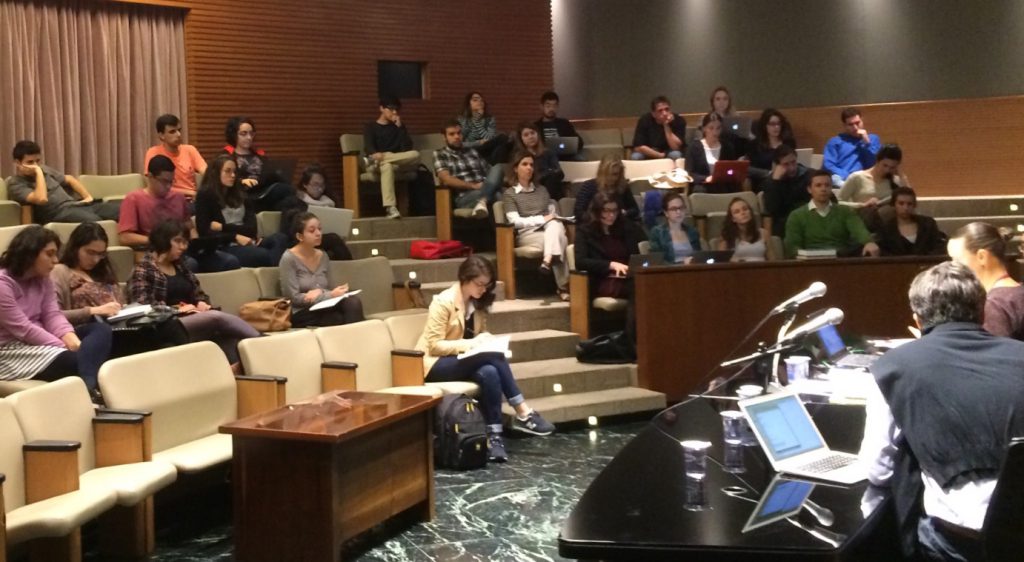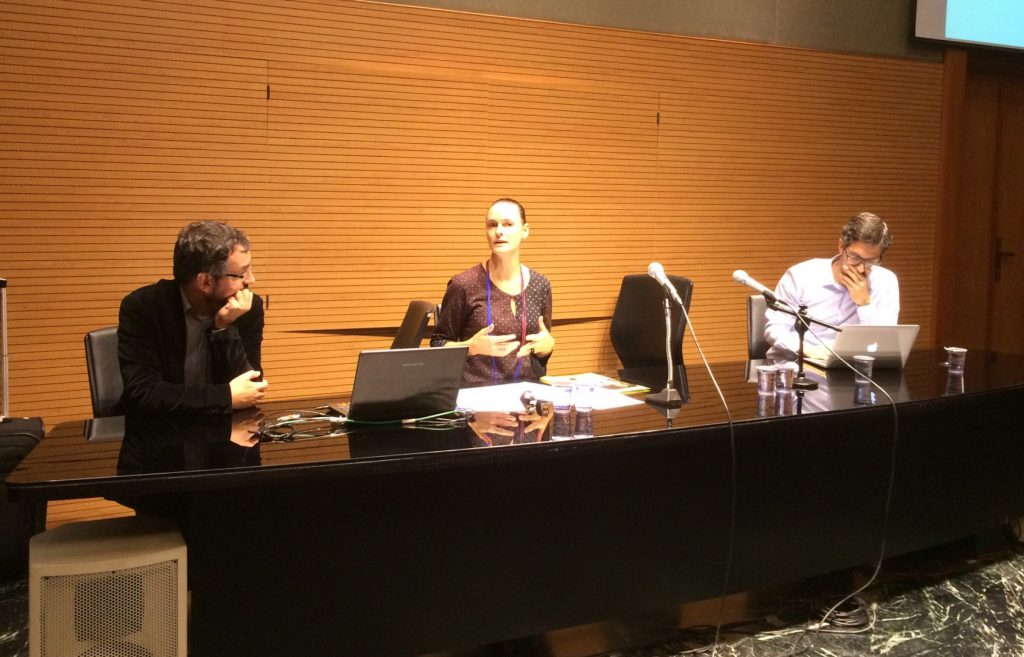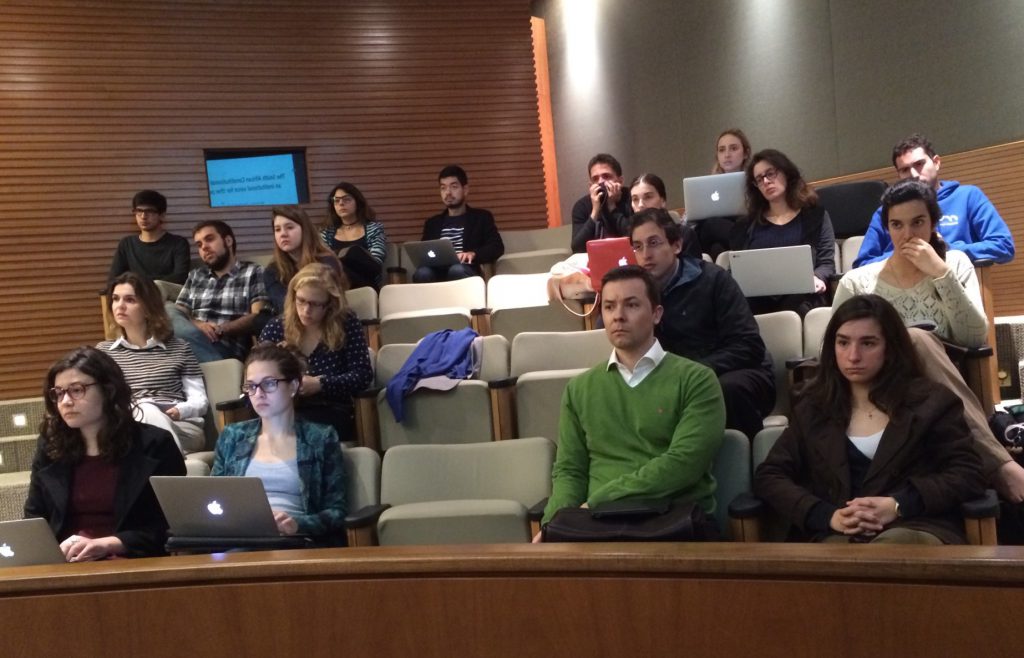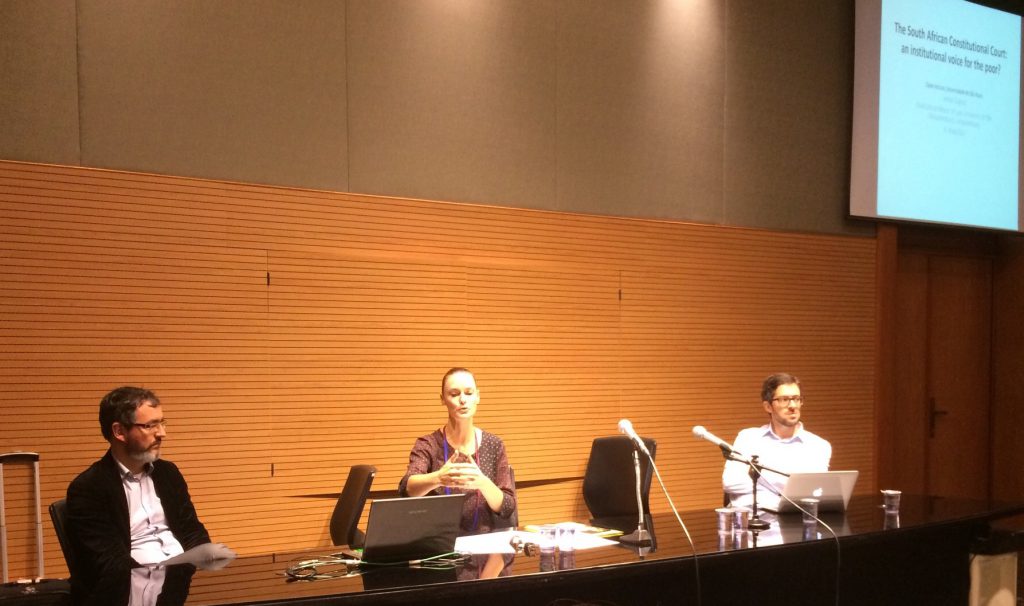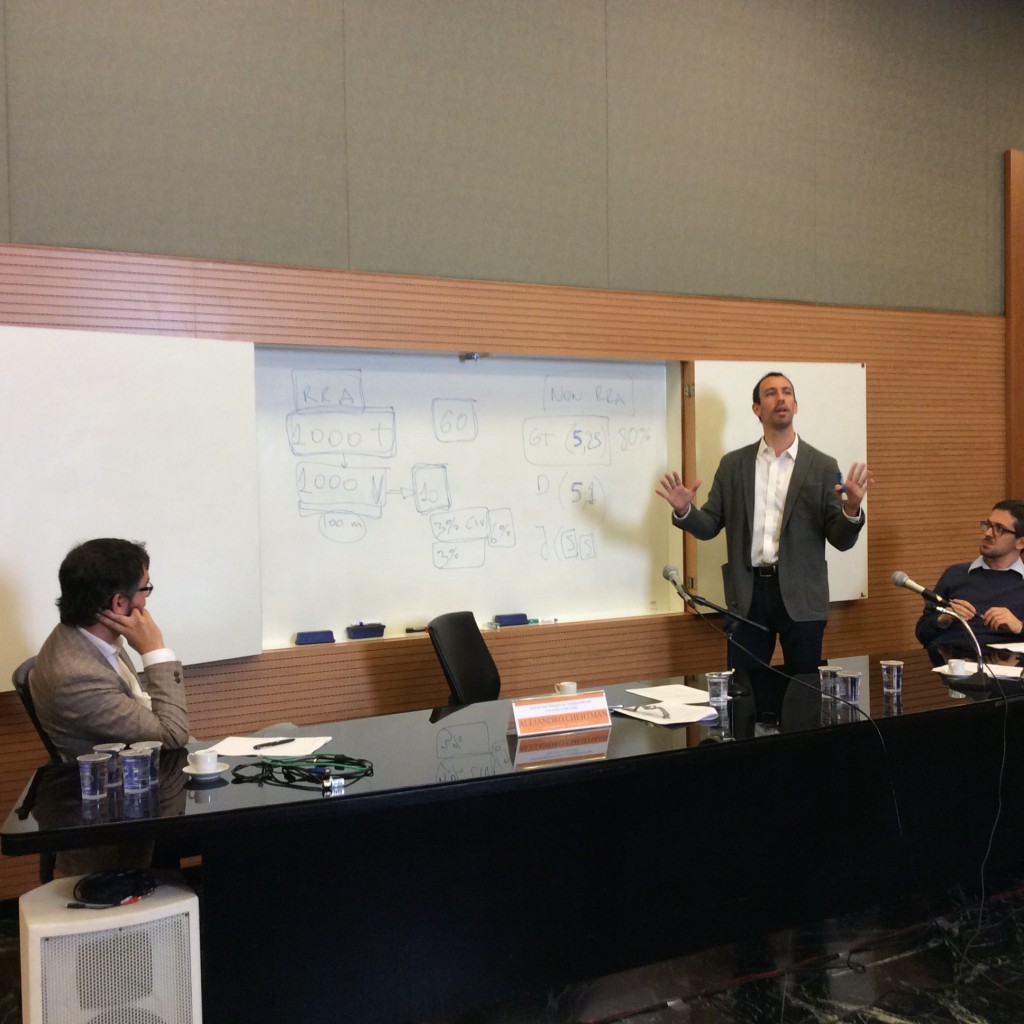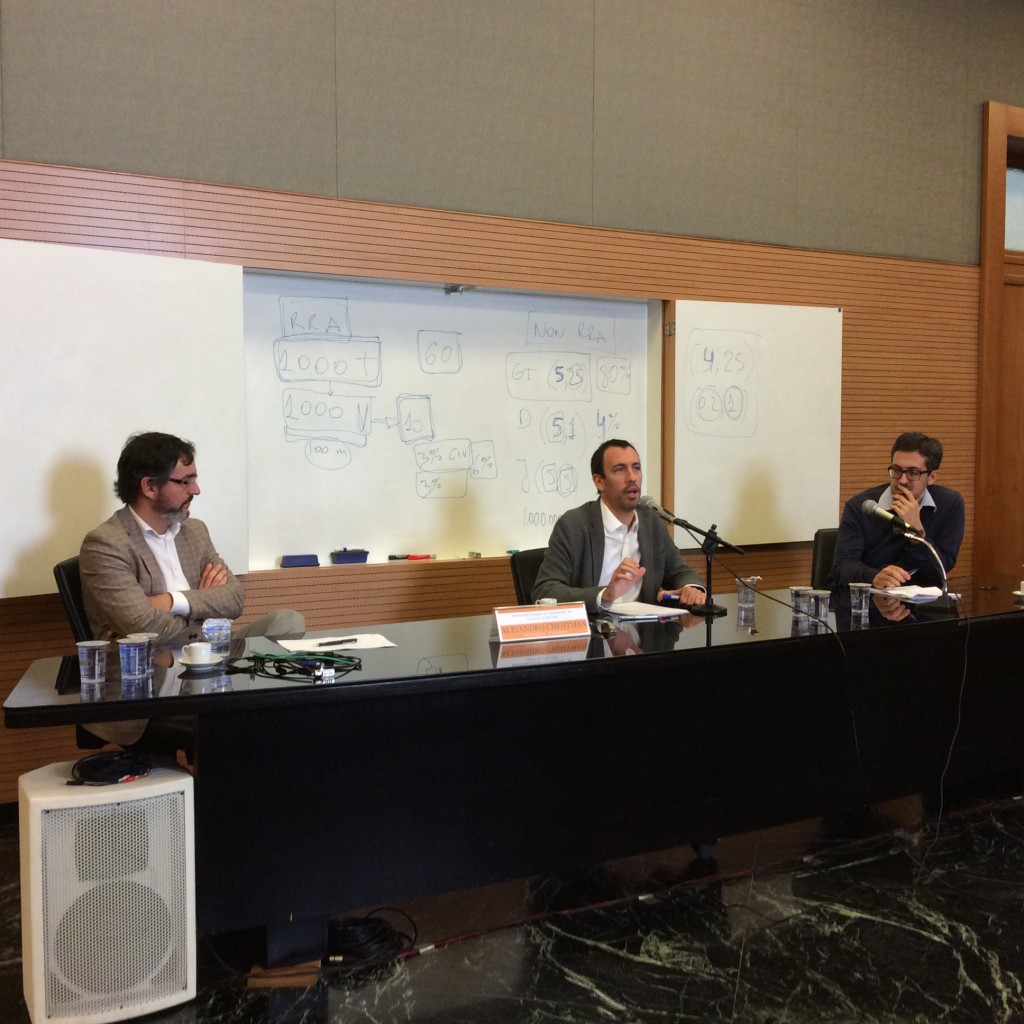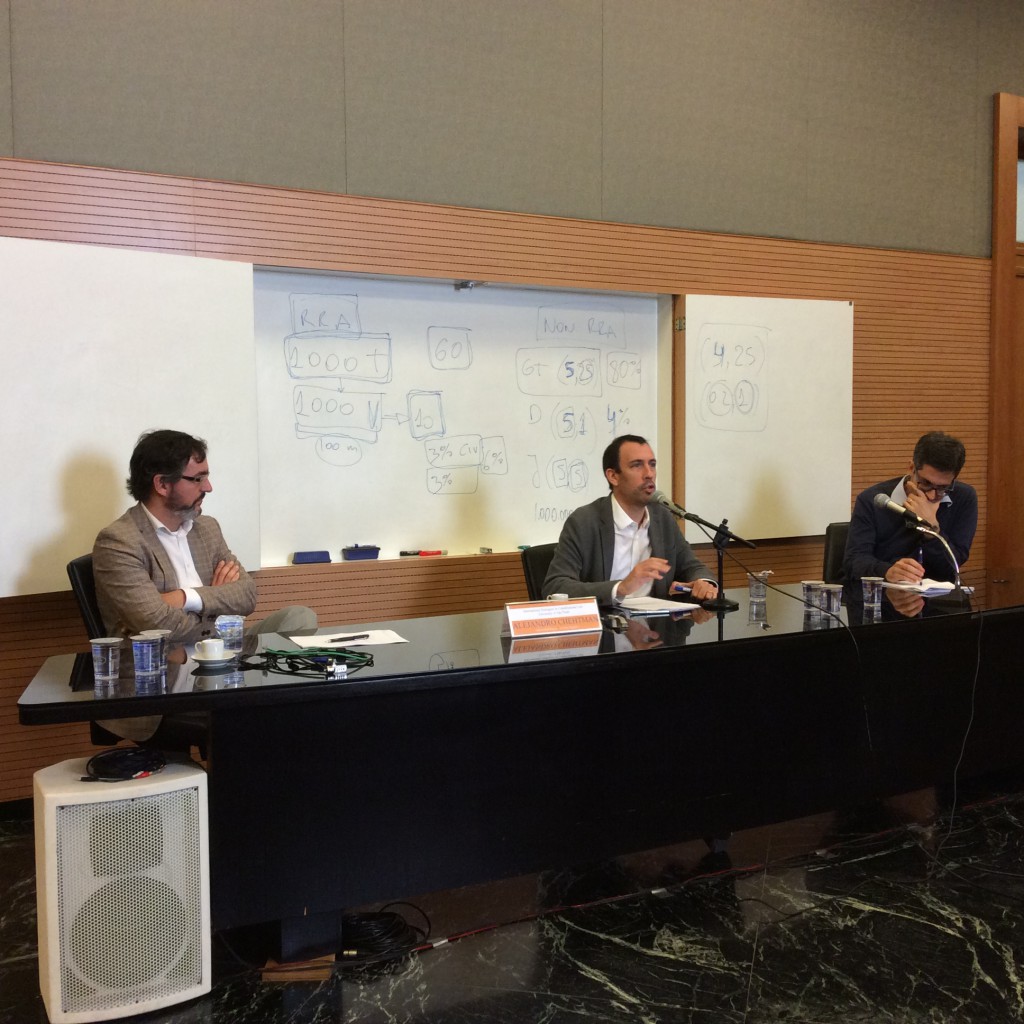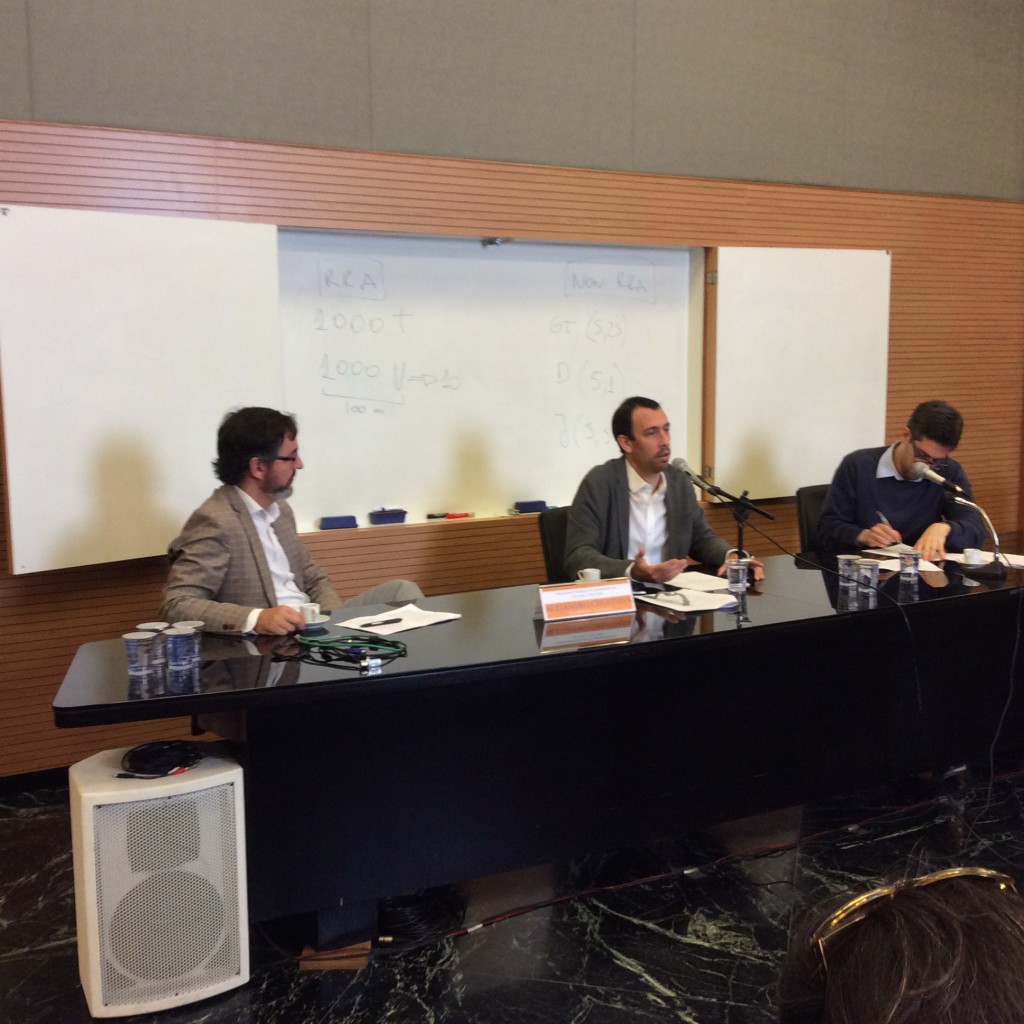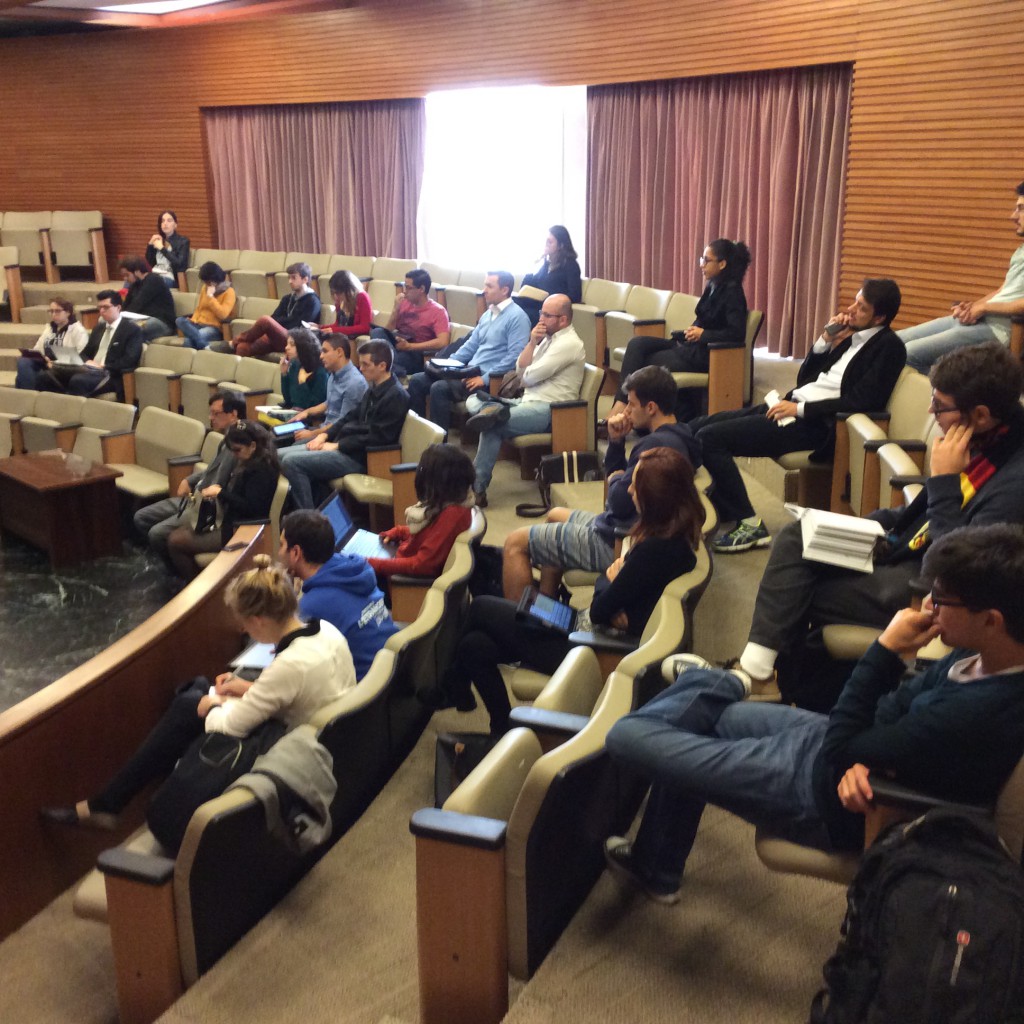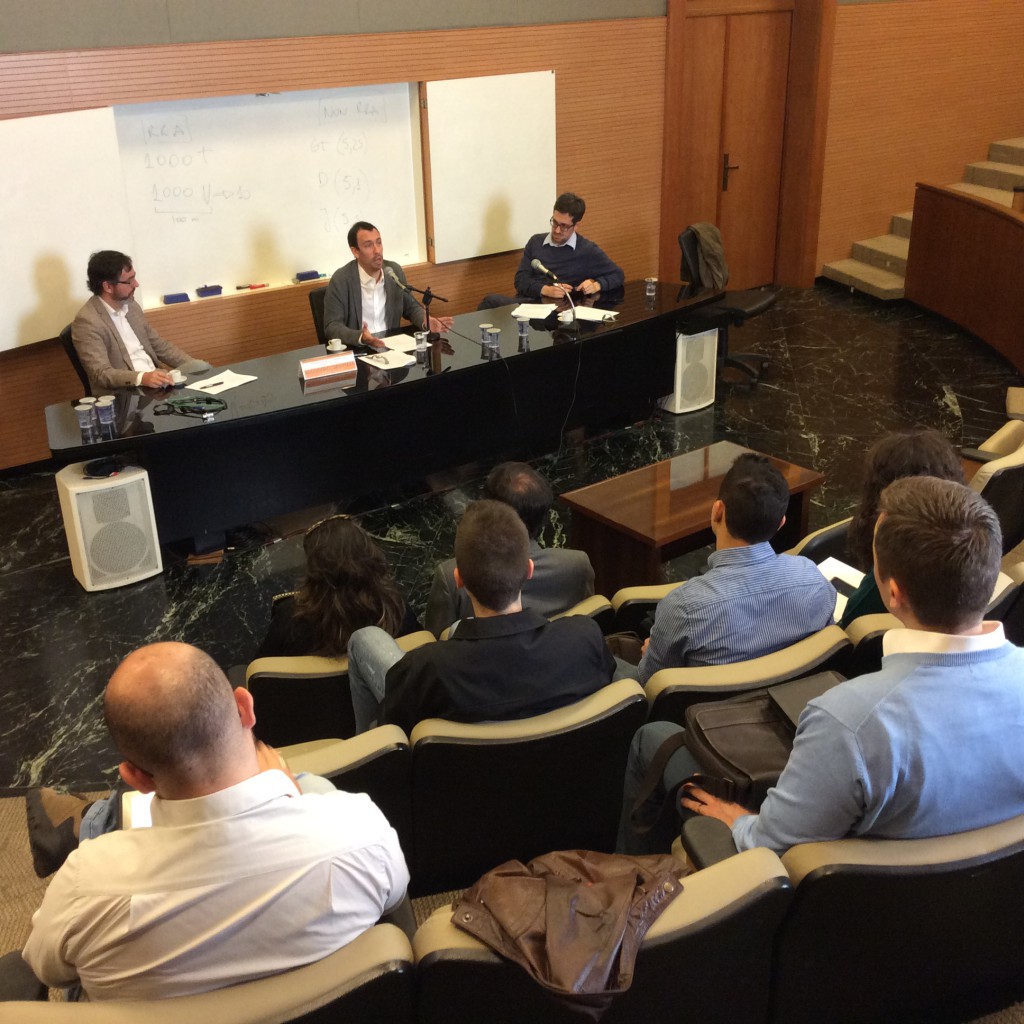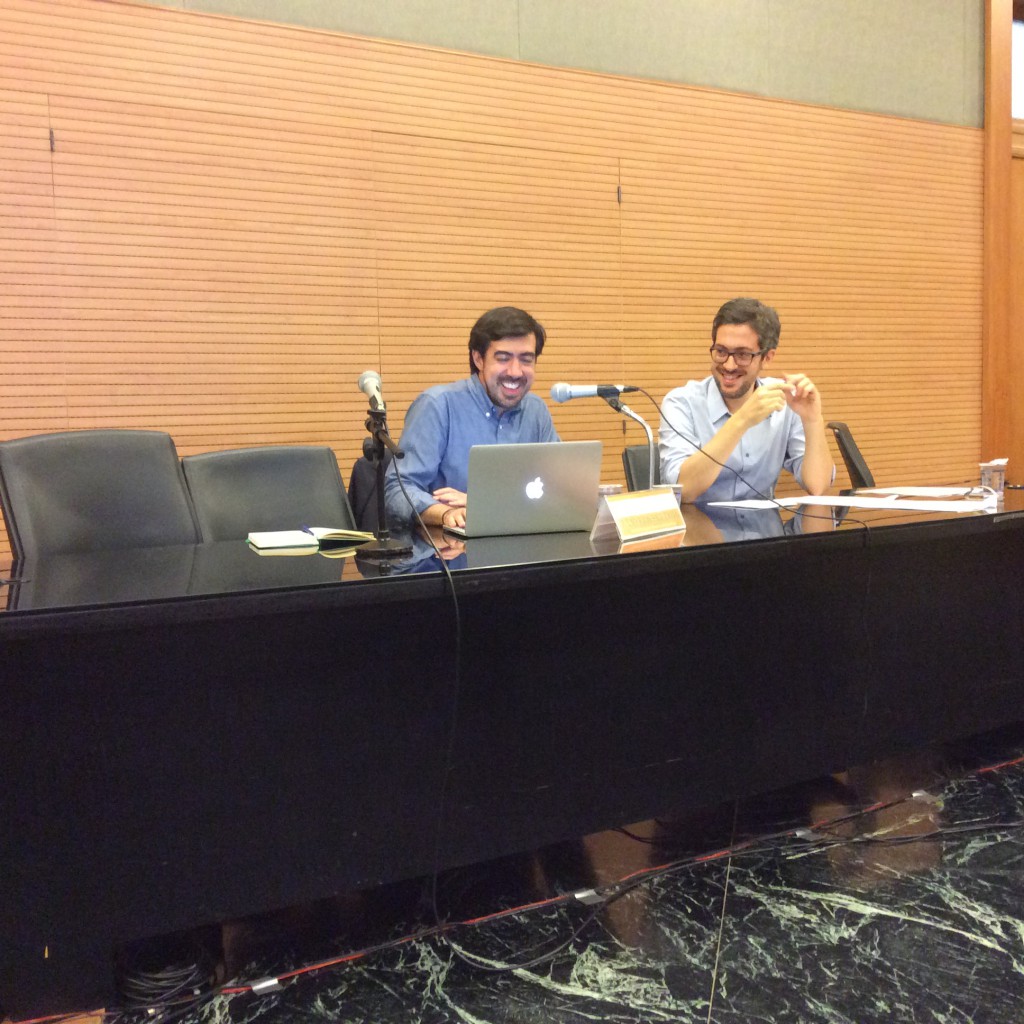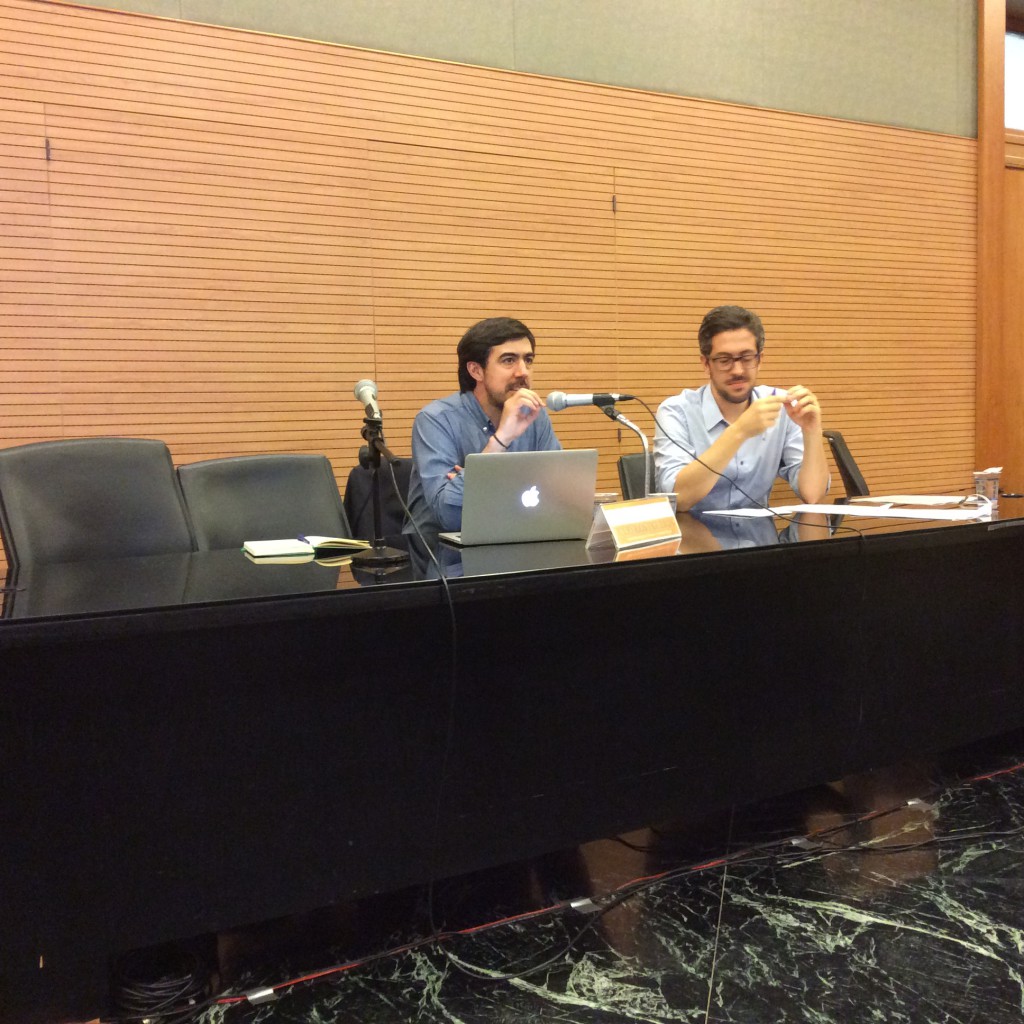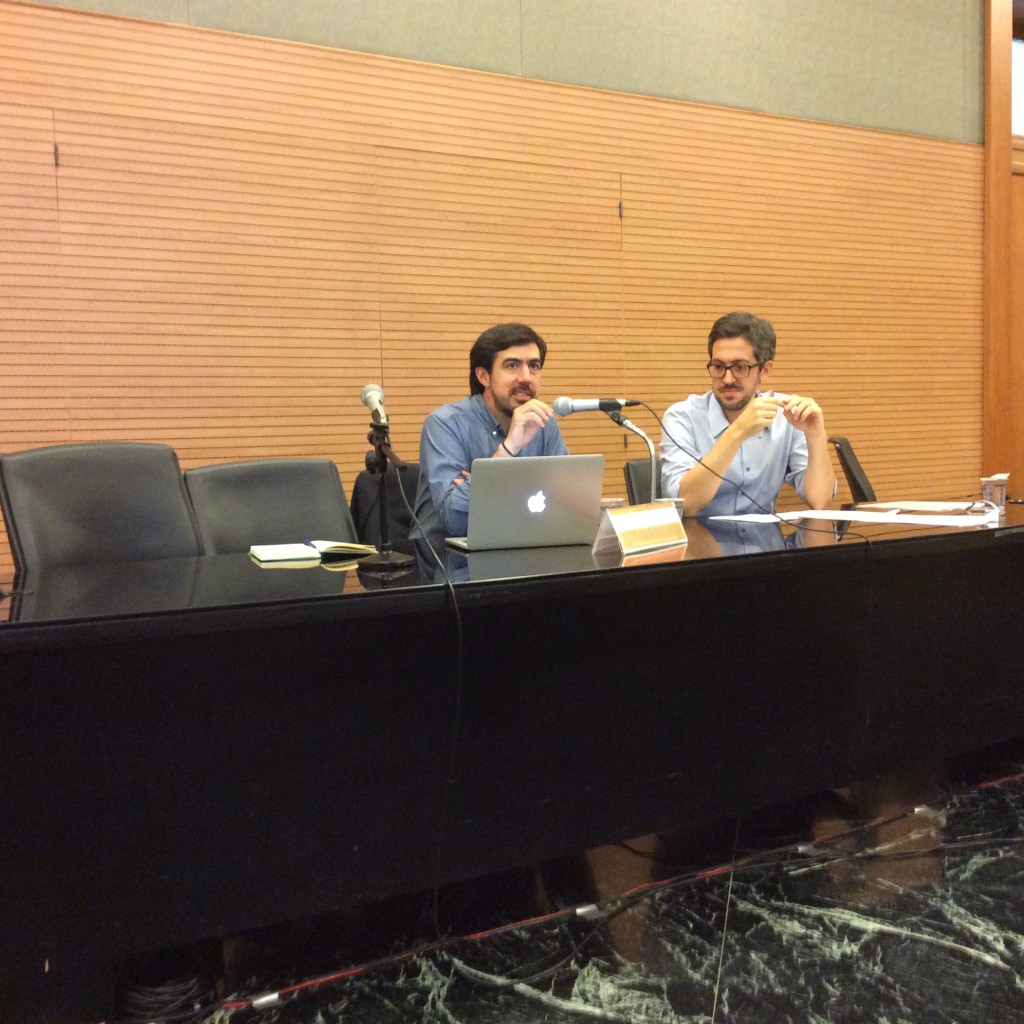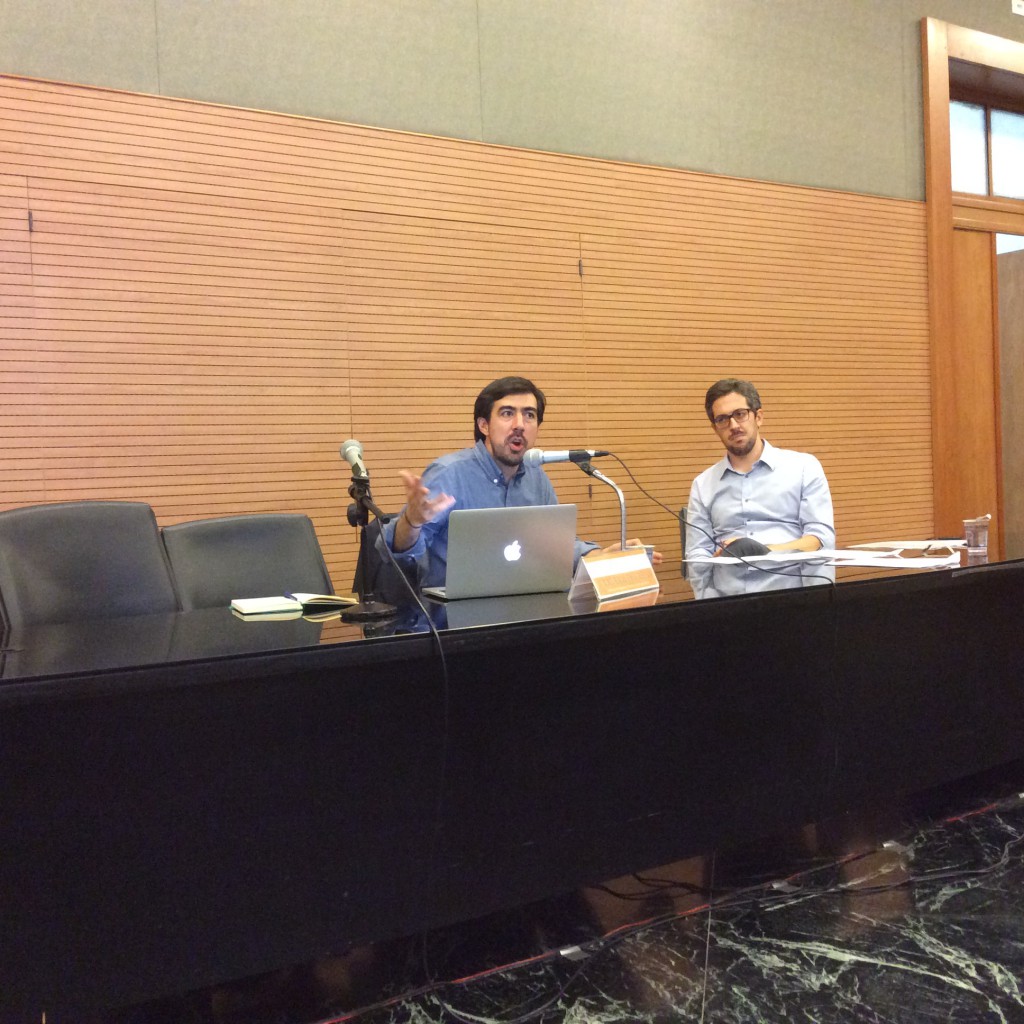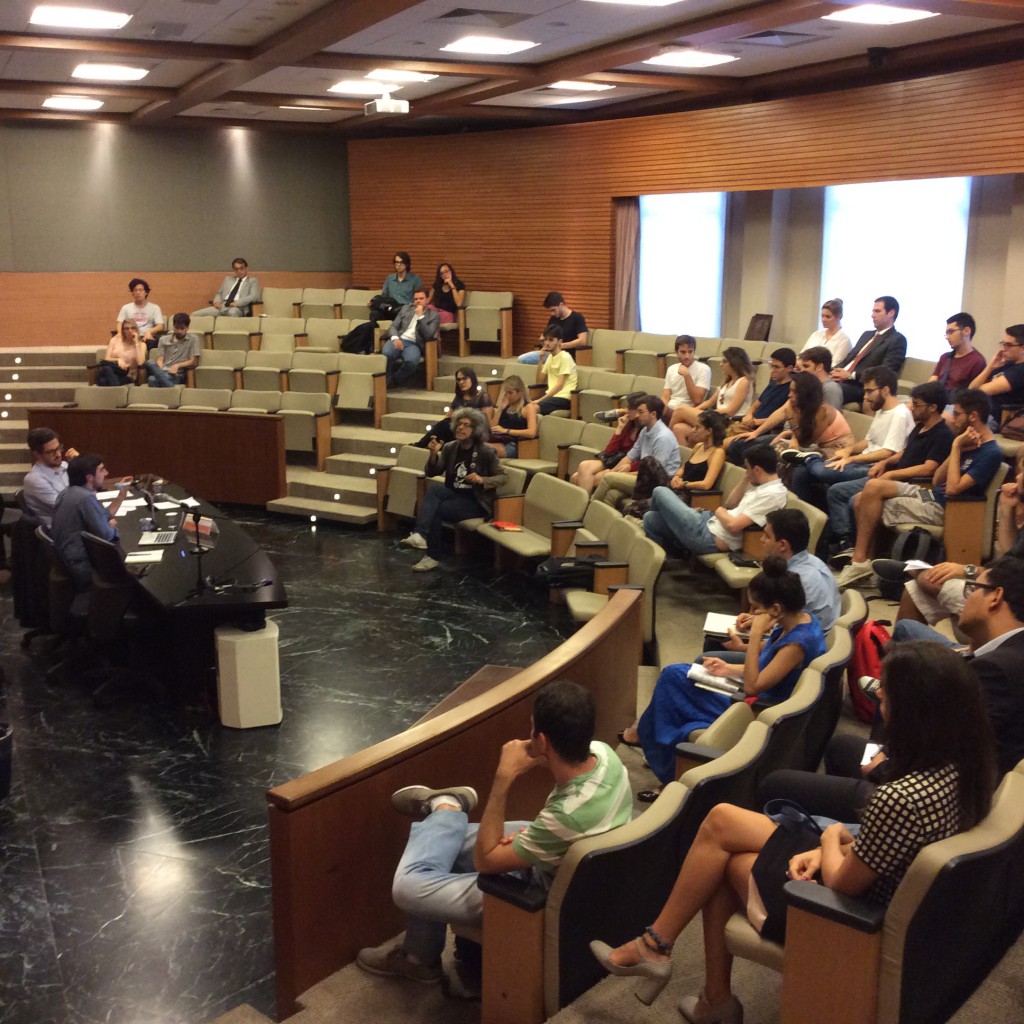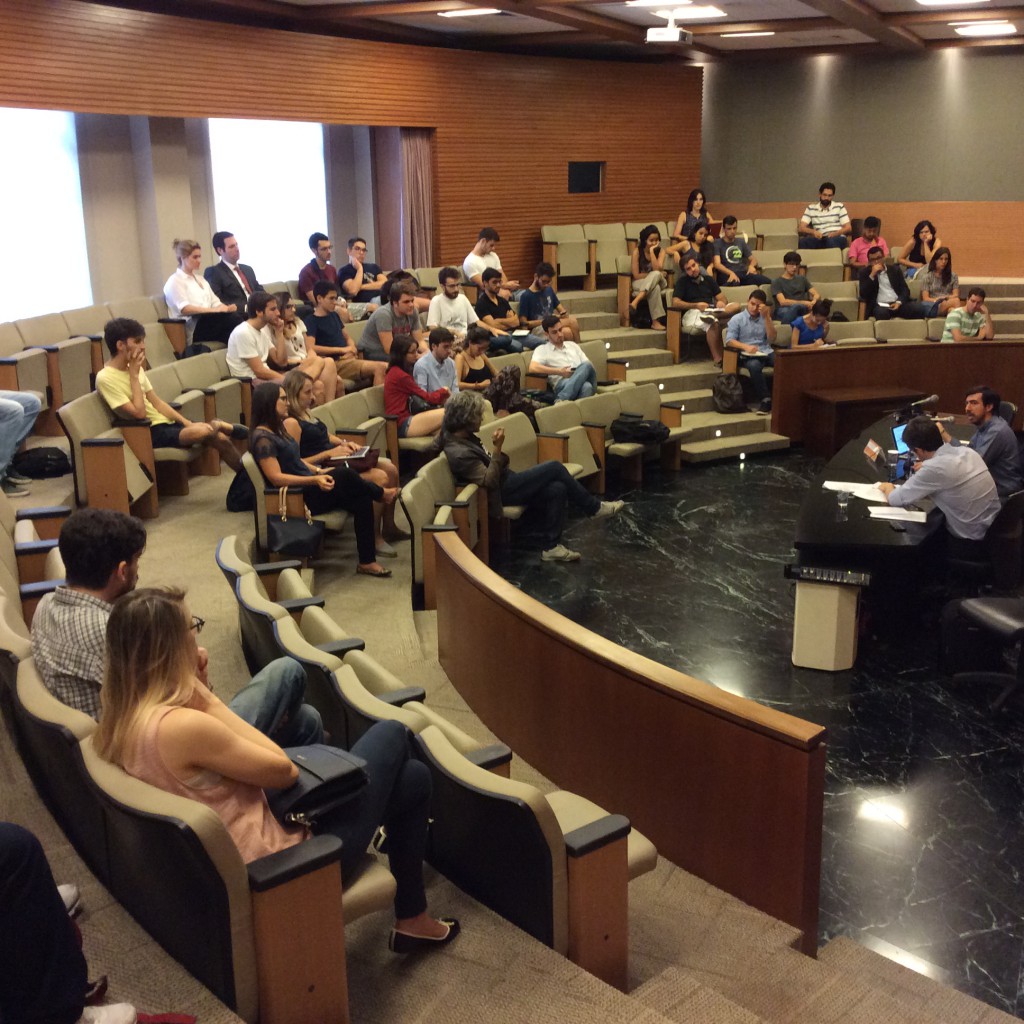After the winter break, the International Dialogues in Constitutional Law series resumed with a lecture by Iddo Porat, from the College of Law and Business, Israel. Author of one of the most important books about proportionality and several articles published in international journals about central themes of contemporary constitutionalism, Porat approached the controversy around the existence of a written constitution in Israel. Based on an analysis of the Israeli constitutional history since its foundation in 1948, and giving special attention to the constitutional revolution of the 1990s, he argued that the Israeli Supreme Court, under the leadership of its most influential Justice, Aharon Barak, carried out a platonic conception of the constitutional text in order to bridge the gap between the partial and fragmented Basic Laws enacted throughout the decades and the ideal of a full-fledged constitution holding a bill of rights. That process arguably transcended mere constitutional interpretation and entered into the realm of constitutional creation and building.
Category: dialogues
International Dialogues 2016, 2nd semester
In: 2016, dialogues, news
Our International Dialogues on Constitutional Law have three guests for the second semester of 2016. We will host Iddo Porat (College of Law and Business, Israel), Daniel Bonilla (Universidade Los Andes, Colombia), and Ralf Poscher (University of Freiburg, Germany).
Jackie Dugard: The Constitutional Court of South Africa
In: 2016, dialogues, dialogues reports
On June 1st took place the last round of the International Dialogues in Constitutional Law series. The group Constituição, Política e Instituições discussed “The Constitutional Court of South Africa: An Institutional Voice for the Poor?,” featuring Professor Jackie Dugard, from the University of the Witwatersrand. Dugard presented the functioning of the South African constitutional court in regards to the adjudication of social rights and her criticism on the current framework, focused on five features: (i) accessibility, (ii) the reasonableness approach and the programmatic role of the Court’s decisions, (iii) the failure to “take poverty seriously”, (iv) the insufficient scrutiny on evidence and budgets presented by the government when the Court analyzes a social program, and (v) the lack of supervisory jurisdiction.
On Dugard’s view, these problems unveil challenges the South African Court has yet to tackle and that must be addressed in the short-run, in order for the system to preserve its utility and ability to affect and promote social change.
After the initial exposition, several issues were discussed, including the efforts made by the Court to not only promote social rights in case law, but to effectively select justices with a more varied background to its benches.
Alejandro Chehtman: The challenge of drones
In: 2016, dialogues, dialogues reports
On May 4th, the series International Dialogues in Constitutional Law hosted Professor Alejandro Chehtman, from the Universidad Torcuato di Tella (Argentina), in order to discuss “The challenge of drones: proportionality and the use of force”. In his research, Chehtman analized if the use of drones in contemporary armed conflicts would be radically asymmetrical, in light of the principles of proportionality and necessity. Based on extensive investigations of the data of such conflicts in the years between 2007 and 2013, he observed that drones are not as precise or sufficiently discriminatory in order to morally allow for the use of force in such circumstances, nor have they been successful in containing threats or preventing damages. Therefore, he concluded that though not in direct violation of the principle of necessity or ultima ratio, drones violate the ad bellum principle of proportionality.
Marco Goldoni (University of Glasgow), The three waves of political constitutionalism
In: 2016, dialogues, dialogues reports
The second meeting from the International Dialogues in Constitutional Law series discussed political constitutionalism
What is a political constitution? It was with this initial consideration that Marco Goldoni opened his speech on April 12th, in which he addressed one of the most important public law debates in the English tradition: the political element of the constitutional norm. Goldoni reconstructed the historical framework of political constitutionalism by dividing it into three waves, in order to demonstrate the importance of the concept of a political constitution reemerging in the third wave.
The political constitution concept comprehends an internal relationship between the constitution and society, an intertwining between the constitution and the social order, which would allow a wider framework to understand its legal aspects. This conception impacts on the way in which adjudication of individual rights is carried out today.
According to Goldoni, after the first wave (which emphasized the social conflicts), the second offered a more normative conception of constitutionalism, which ended treating the political process as a congressional process, therefore creating strong limitations. Why reconstruct constitutional politics so stringently, without taking into consideration the constituent power, which is the precise moment when politics has its greater creative potential? In the author’s view, the great gap of these theories is their failure to understand conflict as an inherent human condition.
For Goldoni, it is necessary to understand the grammar of political constitutionalism. Therefore, though incipient, the third wave of political constitutionalism has already started, a wave that recuperates the sense of politics from the first wave and brings social movements back to the center of the discussion. This new theoretical approach points towards institutional possibilities which the constitutionalists didn’t agreed yet, such as discussions regarding actors, positions and social representation, such as discussions regarding actors, positions and social representation.
After the exposition, several questions emerged for the debate: the importance of a bill of rights, the role of parliament, the institutional organization, the best way to protect rights, the possibilities for judicial review, as well as the role of the courts in promoting social demands. Highlighting the great difference between the Brazilian and European contexts, Goldoni stated the need of a more sensible and sociological view of the constitutionalists academics, which brings about the intermingling between the constitution and the ever-changing social relations.
Julio Rios-Figueroa debates the role of constitutional courts in Latin America
In: 2016, dialogues, dialogues reports
On April 20th, the series International Dialogues in Constitutional Law hosted Julio Rios-Figueroa, political scientist specialized in constitutional courts and Professor of the Centro de Investigación y Docencia Económicas (CIDE, Mexico). Rios-Figueroa approached the topic of “Constitutional courts and democratic conflict solving”, based on his recently published book by the Cambridge University Press. In his research, he discusses the role of constitutional courts in the legal understandings of civilian-military relationships within the democratic governments of Colombia, Mexico, and Peru. Based on extensive empirical evidence, he argues that when constitutional courts are independent, accessible, and have broad constitutional review powers, they better fulfill their role as ‘mediators’ of the confrontational governmental relationships with the armed forces. Unlike ‘arbitrators’, that solve distributive conflicts and generate winners and losers, ‘mediators’ are more effective in stabilizing those relations.
Amy Allen (Penn State University), Utopia and Feminism
In: 2016, dialogues, dialogues reports
First meeting of the 2016 International Dialogues on Constitutional Law series discusses gender relations and empowerment
In the first event of the 2016 International Dialogues on Constitutional Law series, which took place on March 10th, the Group “Constitution, Politics and Institutions” received Amy Allen, Professor of Philosophy and of Gender and Sexuality Studies at Penn State University.
In the lecture “Utopia and Feminism”, Allen presented her thoughts on power relations, emancipation and feminism in contemporary society, which result from the tense and unusual conciliation between two theoretical references: the critical theory model of the Frankfurt School and the concepts of Michel Foucault and Judith Butler. Allen characterizes her theoretical project as a productive tension that allows refining the diagnosis of how gender relations operate, shedding light on its complexities, helping to understand the intersections between gender and other social markers of difference. Furthermore, the project aims at conceiving the idea of emancipation without resorting to the idea of utopia, which would presuppose a notion of progressive and Eurocentric historical development.
Following her opening presentation, different topics were discussed: the relation between Allen’s concept of emancipation, social struggles and their political motivations; electoral gender quotas; male role in feminism struggle; the International Human Rights Law. How to identify power relations and gender domination empirically was also a matter of concern. Amy Allen concluded the debate by stating that her conception of emancipation, inspired by post-colonial feminists, allows for the questioning of our own narratives of progress and modernity. Thus, her views would provide deeper self-reflection, epistemological humility and solidarity.

